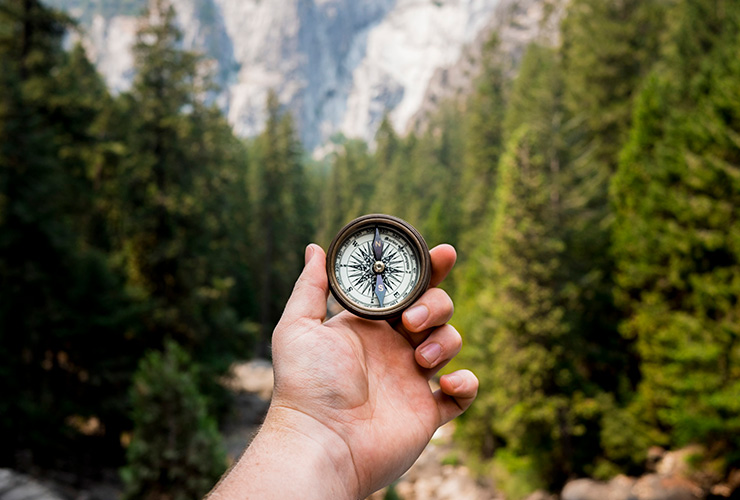
The quest for meaning in life, known as ‘ikigai’ in Japan, explores the intersection of mind, body, skills, desires & relationships. Learn to find yours…
—
Have you ever stopped to think about your purpose in life? Or why you get up every morning? (Think beyond having to go to work or take the kids to school.) In Japan, this quest for meaning is known as your ikigai.
Let’s explore how to find your ikigai and why it might help you live a life of happiness and purpose.
What is Ikigai?
There’s no direct English translation, but ikigai (pronounced EE-key-guy) roughly translates to your life’s purpose.
The concept of ikigai dates back to the 790s. It stems from iki, which means life, and kai, which means shell. Since shells were highly valuable at that time, ikigai means finding the value of your life.
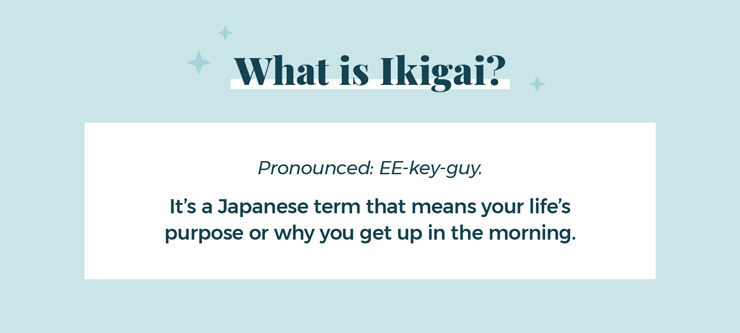
Here’s why you should try to find your ikigai. Aside from being an interesting historical philosophy, ikigai could be the secret to living longer.
Consider the island of Okinawa where many people share a devotion to ikigai. It’s known as the “Land of the Immortals” because it has the largest concentration of centenarians (people who live to at least 100) of anywhere in the world! Nearly two-thirds of its residents are still functioning independently at 97.
How to Find Your Ikigai
Your ikigai lies at the intersection of four core questions:
1. What do you love to do?
2. What are you good at doing?
3. What does the world need?
4. What can you be paid for doing?
Many people satisfy two of the above questions. For example, maybe you’re doing something you love and you’re good at doing it, but you’re not being paid for it. Or, perhaps you’re doing something you’re good at and making money doing it, but you don’t really love it.
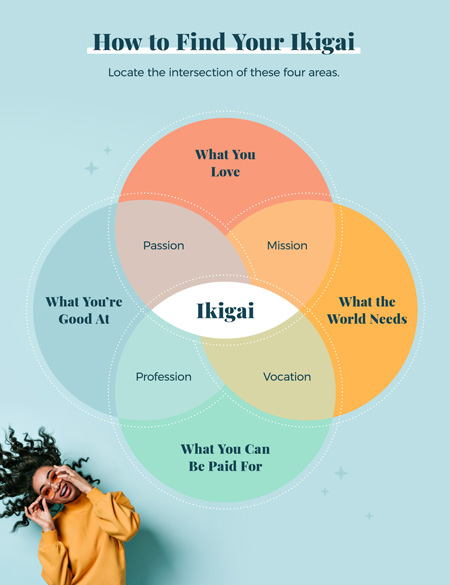
Finding your ikigai is difficult, but it can be the key to a more meaningful, happy life. Remember that ikigai is similar to happiness but not completely synonymous. Working to find your ikigai allows you to look forward to the future even if you’re miserable today.
Characteristics of Everyday Ikigai
Ikigai means a lot of different things to different people. Many people devote themselves to ikigai to discern their career path. Ikigai can also be applied to everyday life. Here are some characteristics of everyday ikigai.
Healthy Body
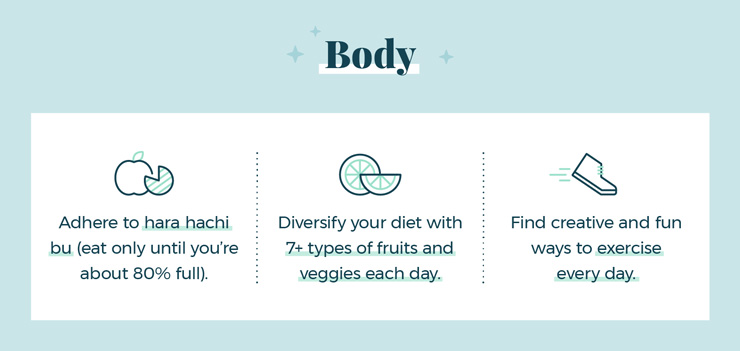
The thinking here goes that a healthy body translates into greater happiness in other areas of life. Two central characteristics of everyday ikigai are eating healthily and exercising regularly.
Many people in Okinawa and elsewhere in Japan who practice ikigai also practice hara hachi bu, which states that you should stop eating when you’re about 80% full. Most Okinawans also diversify their diets, opting for seven different types of fruits and vegetables each day, on average, and 200 different types of foods and spices in their overall diet. By contrast, Americans typically eat around 15 different types of foods in their overall diet.
You’ll also want to find ways to exercise every day. If traditional exercising is not fun for you, find fun games with your friends and family. In Japan, many people play gateball (a sport inspired by croquet) and dance well into their later years of life.
Healthy Mind
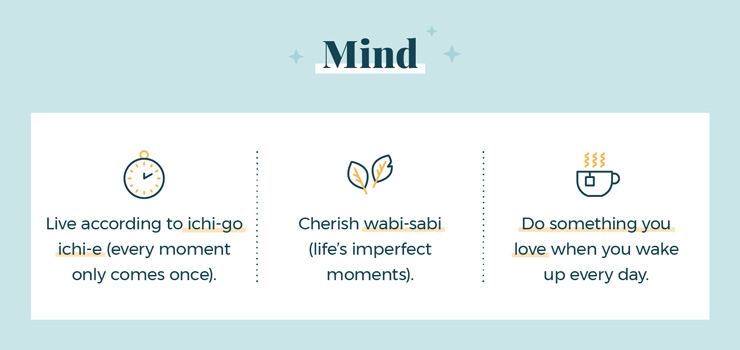
Everyday ikigai also involves keeping your mind and emotional being healthy. That starts as soon as you wake up every day.
You should aim to do something you love shortly after getting out of bed. Maybe, you have a favorite coffee you like to sip on, or you enjoy walking your dog while watching the morning sunrise. Whatever it is, do something that you enjoy every morning, and set yourself up for success for the rest of the day.
It’s also worth living by another characteristic of everyday ikigai, ichi-go ichi-e, which is the idea that each moment in life only comes once, so you should enjoy it while it lasts, and wabi-sabi, which involves making the best out of life’s imperfect moments.
Healthy Relationships
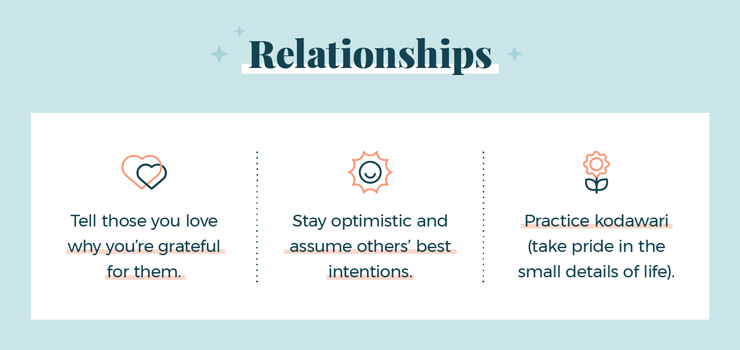
Most importantly, everyday ikigai involves celebrating others and maintaining healthy relationships. Try making a habit of telling your friends and family why you’re grateful for them. When you run into a rough patch with them, assume their best intentions and remember the good times you’ve shared with them.
Beyond that, take pride in the small details of your relationships and life, in general. Do more than is necessary without expecting a reward in return. In Japan, this is called kodawari.
You may also enjoy reading Moonshot Magic: Declaring & Committing to Something Extraordinary by Amy Elizabeth Gordon